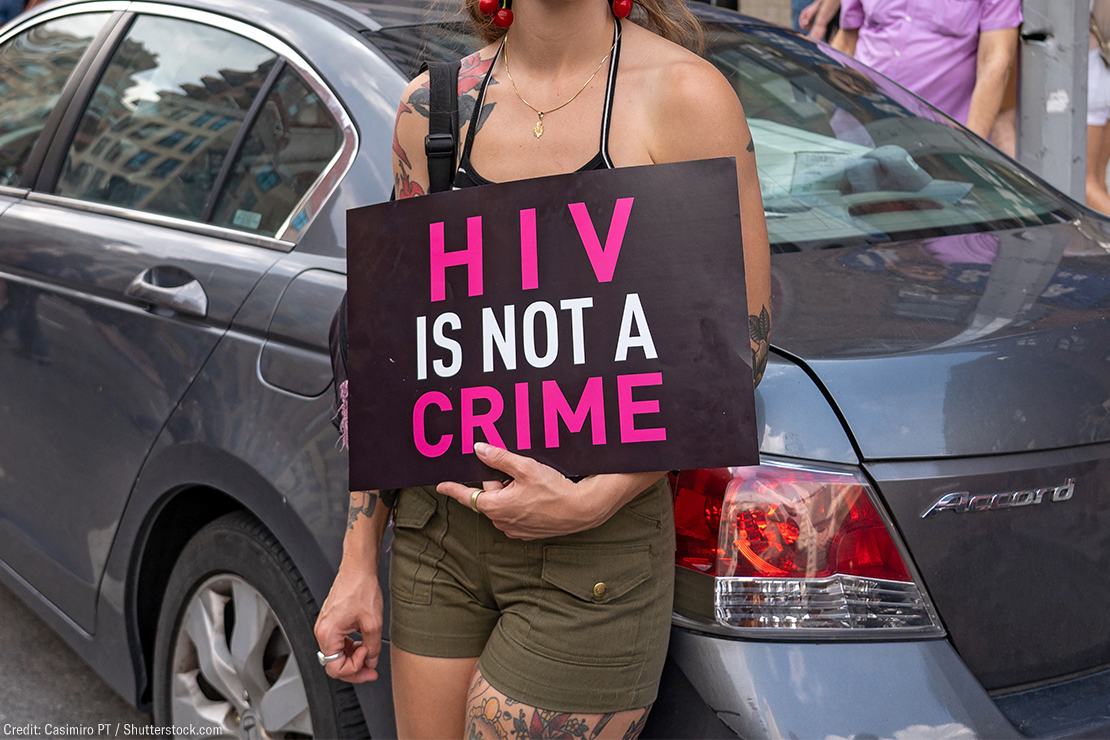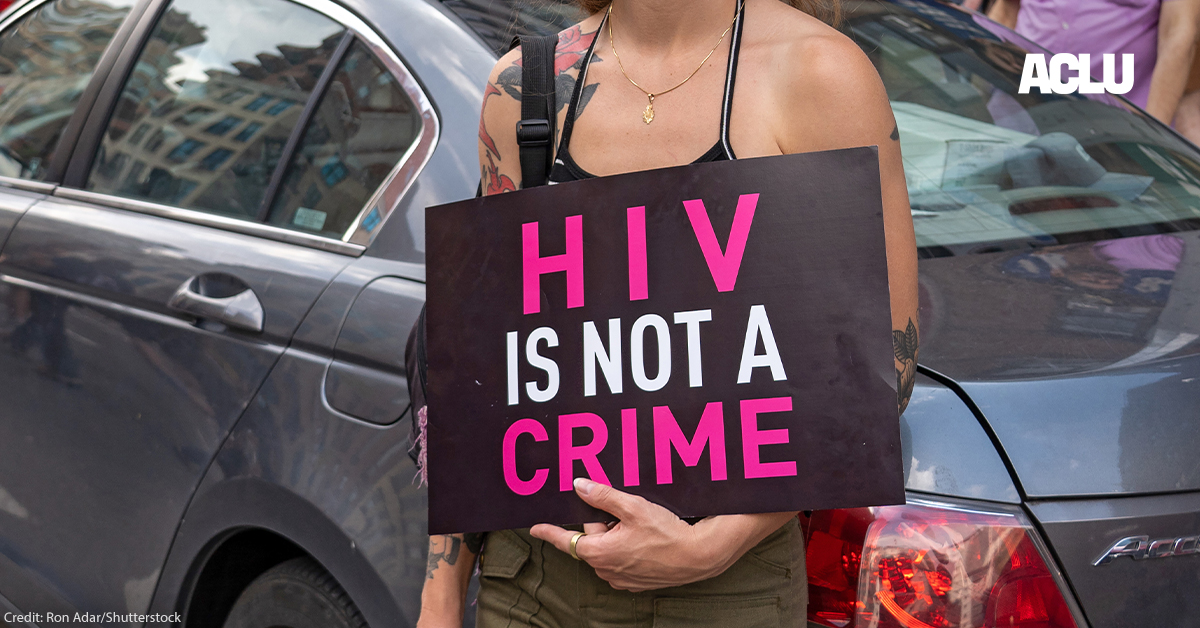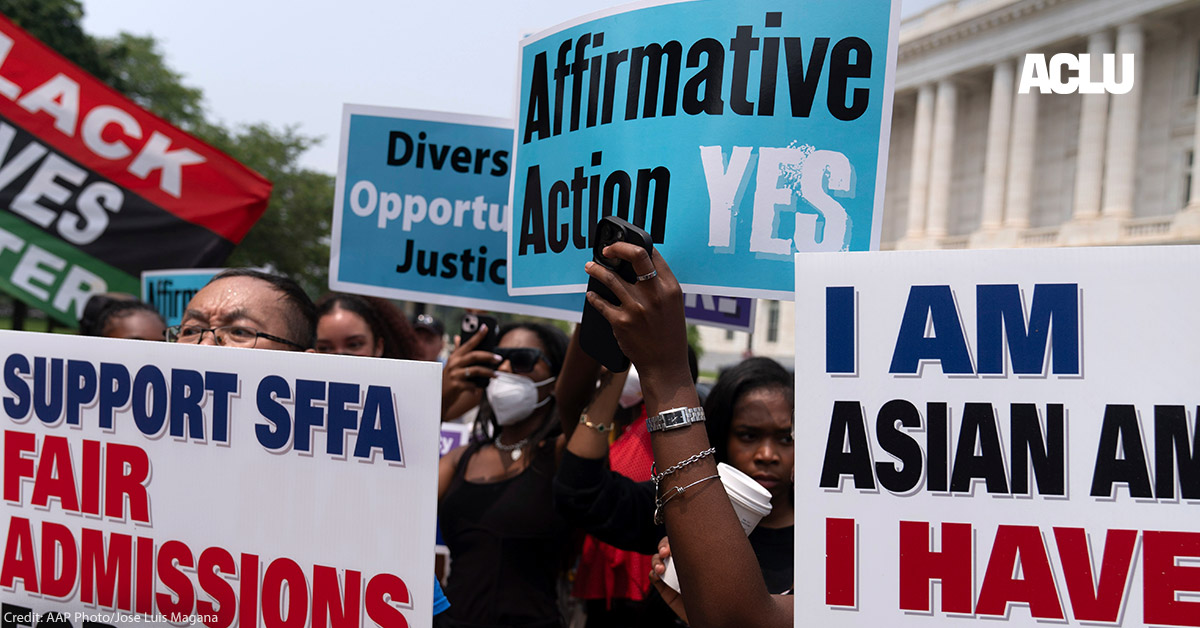As a Black transgender woman and a former sex worker, it’s not unusual for me to face harassment and profiling from police. Regardless of whether we’re engaged in sex work or not, police frequently target transgender women like myself for searches and arrest, using anything from condoms to cash as “proof” we were engaged in sex work. For those who actually do engage in sex work, the criminalization of that livelihood raises the stakes of police encounters, and laws that criminalize our HIV status even more so.
In 2010, I was arrested in Memphis, Tennessee, and charged under the state’s aggravated prostitution statute, a law that raises sex work from a misdemeanor to a felony strictly on the basis of my HIV diagnosis. The law, passed in a wave of fear and panic following the height of the AIDS epidemic in 1991, doesn’t require transmission of HIV, or even an act that could possibly transmit HIV, for prosecution. It applies to everyone living with HIV, regardless of whether they are taking precautions to ensure there is no possibility of transmission or if they have disclosed their status. It targets someone like me solely on the basis of my HIV status – a protected disability under the Americans with Disabilities Act – even though there are lots of ways people living with HIV can have safe sex.
Most alarmingly, the law requires me, and anyone else convicted under it, to register a “violent sex offender” for the rest of my life, even though I have committed no such violent act and only engaged in consensual sexual activity between adults. This unfair registration requirement has denied me housing opportunities, leading me to be homeless for more than a year, with no access to shelters or support programs. It shut down job opportunities and has made it difficult to maintain a living. In fact, just 23 percent of people charged under Tennessee’s law are employed in traditional wage work after their conviction.
Even though my conviction had nothing to do with children, I cannot legally be alone with my nephew, whom I love. I’m afraid to have children of my own for fear of how my registration would impact them and my ability to parent them. This needless shame and embarrassment has been made worse by the public status of my registration, giving strangers the ability to harass, or even blackmail, me.
When I first pleaded guilty to my charges, I was not informed of any of the specifics about registration. I was not informed my registration would be for the rest of my life – despite the fact that I haven’t hurt a living soul. Tennessee’s law is a relic from a time before treatments such as antiretroviral therapy (ART) and pre-exposure prophylaxis (PrEP), which can reduce viral loads to undetectable levels, blocking the possibility of transmission of HIV. I had no idea such a law was even still on the books.Many other states have repealed their HIV criminalization laws because of opposition by advocates and medical experts alike.Studies consistently show the laws don’t work to reduce HIV transmission, but rather interfere with people’s willingness to get tested, which is the most effective way to reduce transmission.
In October 2023, the ACLU, the ACLU of Tennessee, and the Transgender Law Center filed a lawsuit to challenge Tennessee’s aggravated prostitution law on the basis that it discriminates against people living with HIV, like me, in violation of the Americans with Disabilities Act. I joined this lawsuit because this law has had such a detrimental impact on me and my life. No one should be forced to endure what I have endured.
Date
Friday, March 15, 2024 - 4:15pmFeatured image







